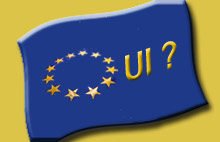27 September 2006
France's Constitutional Council is due to rule on the constitutionality of the London Agreement by the end of next week. Ratification by France is the chief remaining obstacle stopping the London Agreement coming into force. The "London Agreement" is about translations of patents in Europe and is drafted as a Protocol on the European Patent Convention. It has been signed by 10 countries to date. To enter into force, at least 8 countries must ratify it including France, Germany and the United Kingdom. The current situation in Europe is that after the grant of a European patent, each country for which protection is sought requires translation of the full text of the patent into its national language.
For an average European patent [1], the patent owner thus pays an estimated € 11, 520 for translations, even though in the majority of cases the translations are never consulted. Under the London Agreement, the states would entirely or partly give up their right to a translation:
· in countries having English, German or French as an official language, no translation is required
· countries where English, German or French is not an official language would only require a translation of the claims in the national language; a translation of the description will only be required if it is not available in an EPO official language prescribed by the country concerned.
· a full translation may be required in case of litigation before the courts.
The savings to patent holders will depend on the number of countries which eventually participate, but it is expected that translation costs can be reduced by 50% if 12 countries join. The London Agreement would make therefore patent protection in Europe much cheaper. Seventy-six French parliamentarians voted to ask the Council to rule on the Agreement on September 2. The Council consists of nine appointed members and Valéry Giscard d'Estaing, who, as a former president, is entitled to sit on the constitutional body. Its job is to decide whether new legislation complies with the country's 1958 Constitution. The Council can only rule if an application is referred to it before a new law is signed by the president. Such applications are normally filed by the parliamentary opposition where it believes that civil rights are at risk.
If implemented, the London Agreement would reduce translation requirements for European patents by allowing member states to opt-out of requiring a translation into their national language.
If the Council rules that the Agreement complies with the Constitution, the country's parliament and President Chirac will be able to proceed with the ratification process. However it is doubtful whether there will be ratification ahead of the presidential election in 2007.
[1] "Average European patent" means a patent covering 8 countries for 10 years, other costs include procedural fees to be paid to the European Patent Office (Euro 4300), patent attorneys fees (Euro 5500) and national maintenance fees (Euro 8900).
Subscribe to:
Post Comments (Atom)



No comments:
Post a Comment